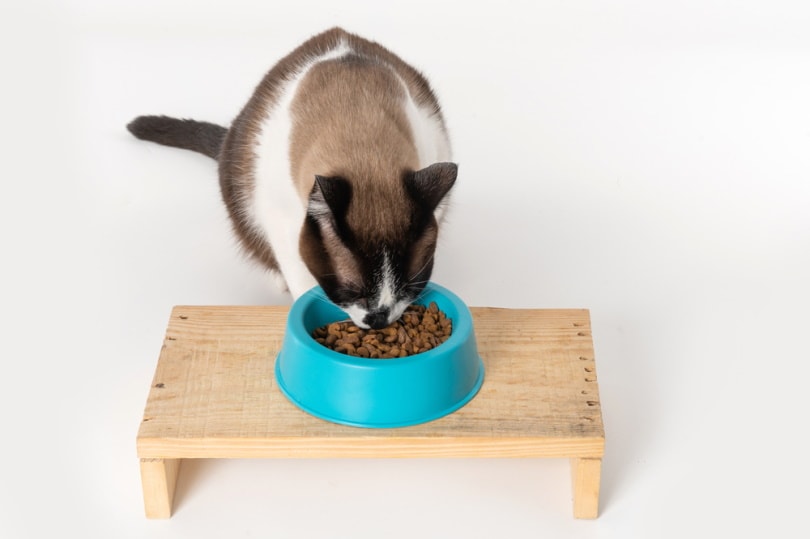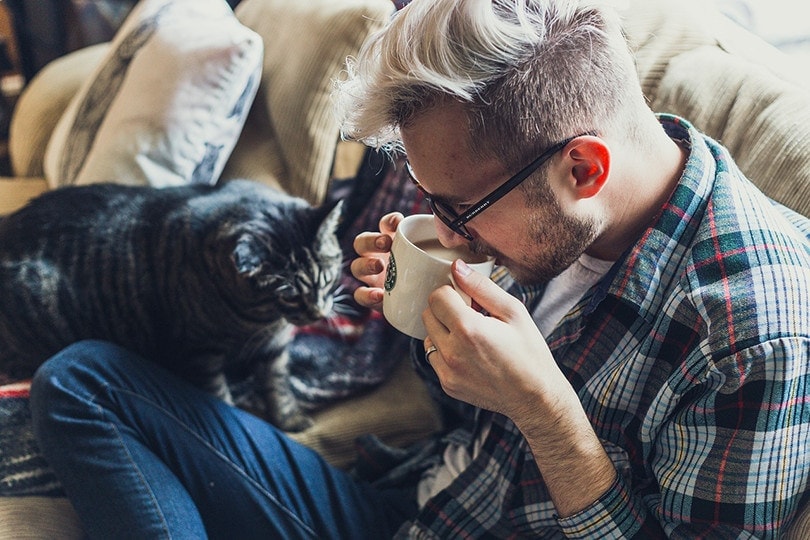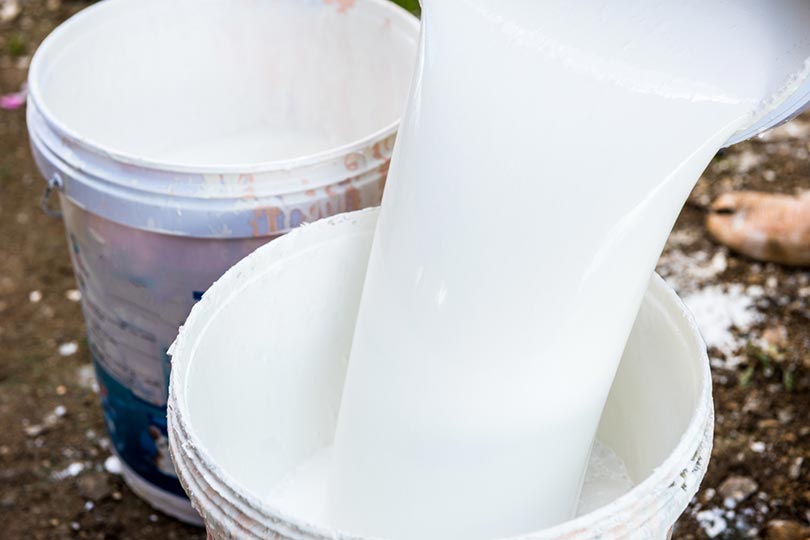Can Cats Eat Smoked Salmon? Vet Approved Nutrition Facts & FAQ
By Lorre Luther
Updated on

Click to Skip Ahead
Salmon is a tasty protein choice that has fans among people and companion animals. It’s packed with protein, low in calories, and full of nutrients such as potassium and vitamin D. It also features omega-3 fatty acids, which are great for feline joints, skin and a healthy hair coat.
Smoking salmon is a popular way of preparing the fish that adds a lot of flavor but could potentially increase the risks of your cat eating it. Smoked salmon is okay to feed your cat in small amounts, just be sure it is thoroughly cooked first as undercooked salmon may contain bacterial contamination.
How Is Salmon Smoked?
Smoked salmon can be prepared a couple of different ways. One way, called cold-smoking, is when the meat is put in salt to cure for a few days and then smoked at moderate temperatures, often lower than 80 degrees Fahrenheit. The smoking process can take up to 18 hours. Cold-smoking doesn’t thoroughly cook the fish, so it shouldn’t be an option for your cat.
Hot smoking, on the other hand, involves cooking salmon at temperatures close to 120 degrees Fahrenheit and can take 8 hours. It’s also called kippered salmon. Hot smoked salmon is usually served in thick slices and has an easy-to-break-apart texture. Hot-smoked salmon is considered thoroughly cooked, and therefore, the best option for your feline friend.
Does Salmon Have Health Benefits for Cats?
Salmon contains omega-3 fatty acids that are great for your cat’s hair coat and skin health. The fish is packed with lean protein, which cats, as obligate carnivores, need for their bodies to operate efficiently. It also has B vitamins that can help keep a cat’s metabolism running smoothly. Keep in mind that cats can develop food allergies, which are often related to proteins such as beef, chicken, and fish, so be sure to monitor your cat for signs of digestive upset or itchiness after giving them salmon.

Is There a Good Way to Give Salmon to Cats?
Cats should always stick with cooked fish to avoid getting sick. Hot smoked salmon is safe for cats, but it takes a long time to cook. It may also be high in sodium. Instead of waiting 8 hours to serve smoked, you can poach, bake, or boil the fish.
Avoid adding salt and broth or bullion to keep the sodium content under control. Also, avoid any additional seasonings, such as garlic and onion, as these can be toxic in high amounts. A few cat-friendly veggies, such as carrots and broccoli, can be thrown in for flavor.
Make sure the salmon is thoroughly cooked before serving it to your cat. Break the filet into small pieces so your buddy can enjoy it. Allow the salmon to cool before serving, and don’t forget to remove the bones before allowing your cat to dig in.
Can Cats Eat Salmon Every Day?
You may have noticed that salmon is a common ingredient in many commercial cat foods, and with good reason. Salmon is an excellent source of protein and other nutrients for your cat,and safe enough to be eaten every day, depending on the preparation.
While you may be feeding a cat food based on salmon, smoked salmon should be seen as a treat and fed in moderation no more than 3-4 times a week. You will want to avoid commercial packed smoked salmon as it may contain other ingredients that could be harmful or an excessive amount of salt.
How Much Food Should Cats Eat Every Day?
Cats generally don’t require much food to stay healthy; 260 calories are sufficient for the average, altered 10-pound cat. Speak with your veterinarian to obtain an accurate estimation of what your companion should weigh and how many calories they should ideally be eating.
There are about 206 calories in 100 grams of wild-caught Atlantic salmon, which is about the size of one human-sized serving. With just a few bites of salmon and one or two high-calorie treats daily, cats can easily gain weight. Around 90% of their diet should be kibble and wet food to ensure they stay nice and fit.
Cats that eat regular cat food in addition to treats and human food can easily end up eating too many calories, which can cause them to put on pounds. Overweight cats often live shorter lives than pets who maintain healthy weights and have greater chances of struggling with conditions such as high blood pressure and arthritis.

FAQ
Can fish cause food allergies?
Feline food allergies tend to be relatively rare, but they occur, often in response to proteins such as beef, eggs, and fish. Cats can react to foods they were once able to eat, and these immune reactions often require multiple exposures. Signs often include itchy skin, hair loss, and ear infections. Some cats have stomach problems as well. Elimination diets can help identify the trigger.
Can cats eat canned salmon?
The salmon in canned products packed in water is safe for cats, but they are really better off without it. Canned salmon often contains preservatives and salt, and too much sodium isn’t healthy! While cats are unlikely to become seriously ill after a small bite of plain water-packed, canned salmon, there are treats that are far better for their health.
Can cats eat salmon skin?
A nibble of plain cooked salmon skin probably won’t be an issue for most healthy adult cats if it’s cut into bite-sized pieces and prepared without problematic ingredients such as garlic and onions.
Conclusion
Cats can generally enjoy cooked fish such as salmon, as long as it’s only an occasional treat and prepared in a cat-healthy way! Hot smoked salmon is safe to serve but cold-smoked salmon isn’t cooked enough to be suitable as a treat. Cooked fish, including salmon, is fine for cats to enjoy in moderation but shouldn’t be on the daily menu. Before serving smoked or cooked salmon to your cat, check with your veterinarian to ensure it’s okay.
Featured Image Credit: Joanna Kozanecka, Shutterstock











